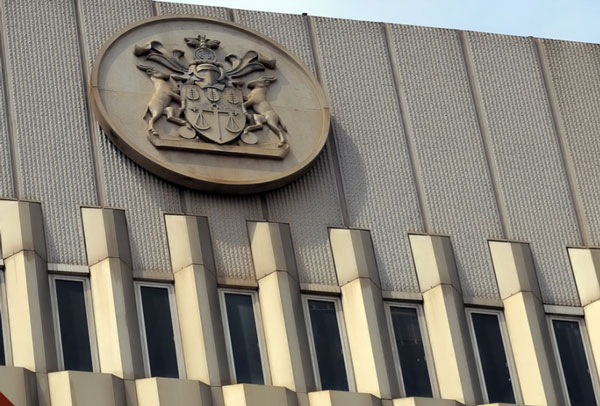
Kampala, Uganda | THE INDEPENDENT | The Bank of Uganda (BOU) has expressed fear over the rising borrowing by the government from the local banking industry, saying it could team up with other factors to affect the growth of the economy.
As of the end of June 2023, the government owes local lenders 33 trillion shillings, which was slightly more than a third of total debt, and now plans to borrow domestically 4.1 trillion in the financial year 2024/2025.
Dr Michael Atingi-Ego, the Deputy Governor of BoU, says this could make it hard for the private sector to access credit and stifle economic growth.
He was issuing the monetary policy statement for February in which the Monetary Policy Committee decided to maintain the Central Bank Rate at 9.5 percent.
Other risk factors to growth include persistent conflicts like the Russia/Ukraine war and the escalating conflict in the Middle East, among others, which could impact the prices of global imports, especially oil.
Atingi-Ego said, however, that the said risks aside, the economy is expected to continue growth.
“Economic growth continues to pick up, in part reflecting the waning drag on growth from past tight monetary and fiscal policies,” he said, citing the recently released quarterly GDP figures by the Uganda Bureau of Statistics (UBoS).
UBoS said that for the first quarter of 2023/24, the economy grew at 5.3 percent primarily driven by growth in household expenditure.
And according to BoU, the high-frequency indicators of economic activity for December 2023 suggest continued economic growth recovery in 2023/24, with growth projected at 6 percent, and between 6.5 and 7 percent in the following years.
This growth is expected from the growing investments in the oil sector, recovery in external demand as well as the low inflation figures which have boosted a recovery in household real incomes, stimulating consumer spending.
While the inflationary environment currently seems to be favorable since last year, according to the Deputy Governor, the risks to the outlook remain, hence the decision to maintain the relatively high interest rate.
He said that this monetary policy stance is consistent with the current assessment of the inflation and growth prospects and remains supportive of socio-economic transformation.
***
URN
 The Independent Uganda: You get the Truth we Pay the Price
The Independent Uganda: You get the Truth we Pay the Price


